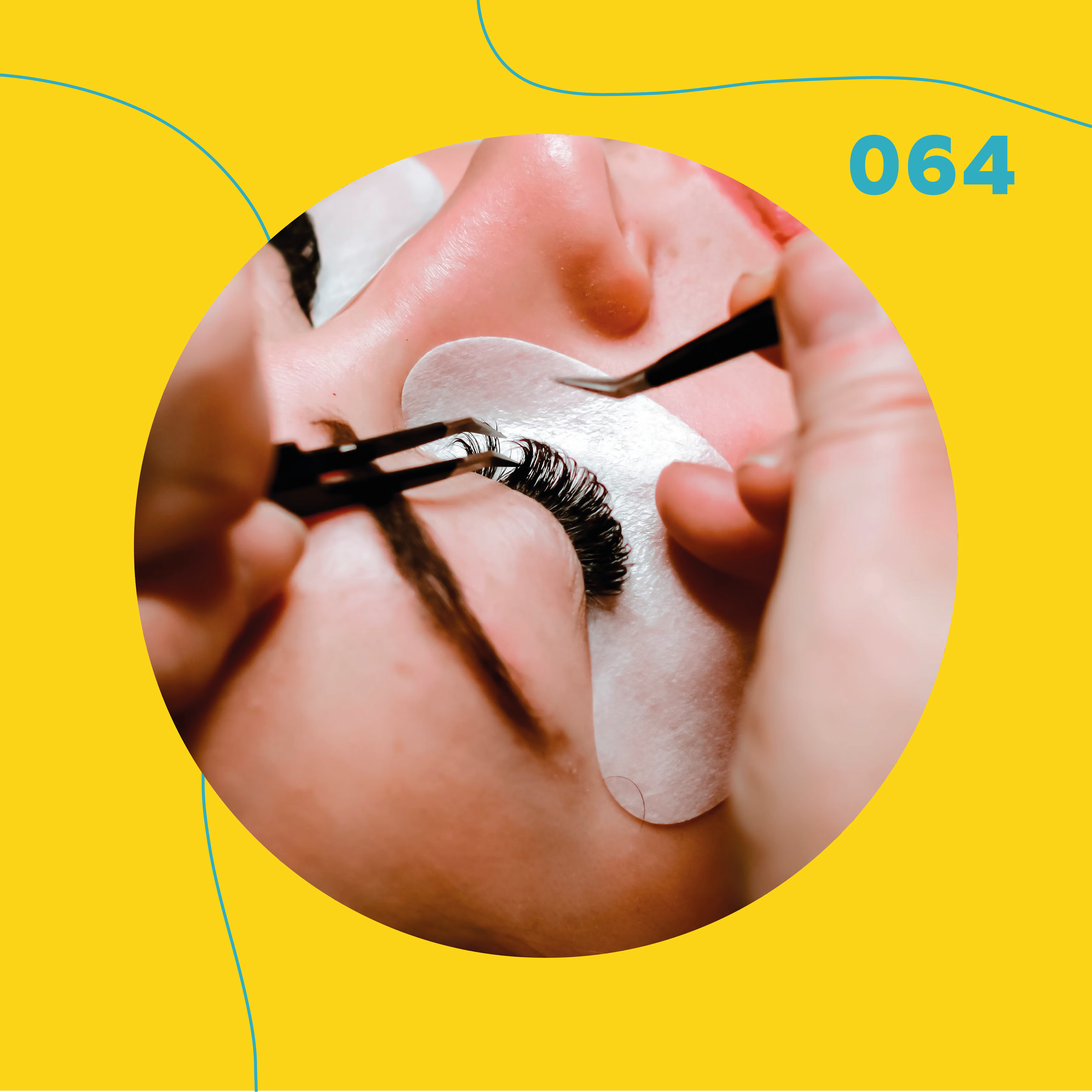Ep. 64: Eyelash Extension Allergies
LISTEN TO EPISODE 64:
iTunes • Spotify• Google • Amazon Music • YouTube
Are you allergic to your eyelash extensions?
Eyelash extensions have become increasingly popular in recent years, offering a way to achieve fuller, longer lashes without the hassle of applying mascara every day. However, some potential risks are associated with eyelash extensions, including allergic reactions.
Dr. Janice Luk joins Dr. G and Kortney to discuss eyelash extensions and what happens when things go wrong. We dive into eyelash extension allergies and contact dermatitis, what the reactions look like, how to treat the reactions best and why you need to take care of your biofilm.
No one wants to play with their vision or have an allergic reaction around the eye; this episode will help you better understand what could happen and how to prepare your lash extensions properly.
What we cover on eyelash extension allergies:
What are eyelash extensions?
How eyelash extensions differ from what you can do at home
What does the allergic reaction to eyelash extensions look like?
Contact dermatitis versus an IgE-mediated allergic reaction
What glues are being used, and what would cause the reaction?
Symptoms and treatment for a lash extension allergy
Why you don't want to use over-the-counter medication for your eyes
The importance of keeping a clean biofilm
Eyegiene
Traction alopecia caused by lash extensions
When should you seek medical attention for eyelash extension reactions
What is the difference between an ophthalmologist and an optometrist
A quick review of the types of lash extension allergic reactions
As discussed at 05:20 in the episode
There are two main types of lash extension allergies: contact dermatitis and IgE-mediated allergic reactions.
Contact dermatitis is caused by direct contact with an allergen, such as the adhesive used in lash extensions. This type of allergy is usually characterized by redness, itching, and swelling around the eyes. This reaction can happen hours or days after the extensions are put on.
IgE-mediated allergic reaction is caused by the immune system reacting to an allergen. This type of allergy is more severe than contact dermatitis and can cause symptoms such as swelling of the eyelids, crusting, and even vision problems. This can happen immediately.
More about ocular eye allergy expert: Dr. Janice Luk
Dr. Janice Luk is a Toronto native who graduated with honors from the Doctor of Optometry and Bachelor of Science programs at the University of Waterloo. She is passionate about expanding her knowledge and bridging the gap between ocular aesthetics and dry eye disease. Janice communicates openly with her patients and volunteers with organizations like VOSH and Fighting Blindness Canada. She is an active member of multiple optometry associations.
Connect with her: https://www.instagram.com/ilukateyes/
Time stamps for what can go wrong with lash extension allergies?
01:40 What are eyelash extensions?
02:20 Patients visiting Dr. G because of reactions to their lash extensions
03:35 How eyelash extensions differ from what you can do at home, such as strip lashes and
04:06 Do reactions look different from those you do at home versus extensions?
04:37 What does the allergic reaction to eyelash extensions look like?
05:10 How fast does the reaction happen with lash extensions
05:40 Contact dermatitis versus an IgE-mediated allergic reaction
06:36 What glues are being used, and what would cause the reaction?
07:06 Cyanoacrylate glue allergy when used in lash glue
08:45 Symptoms and treatment for a lash extension allergy
10:27 Why you don't want to use over-the-counter medication for your eyes
12:07 Patch testing to eyelash glues
13:34 The importance of keeping a clean biofilm
14:31 How can you tell it is a biofilm issue rather than an allergic reaction or contact dermatitis
16:10 Eyegiene
16:40 What to do to prepare for eyelash extensions
17:36 Traction alopecia caused by lash extensions
18:09 When should you seek medical attention for eyelash extension reactions
18:49 How lash extensions can make dry eye worse
19:32 What is the difference between an ophthalmologist and an optometrist

